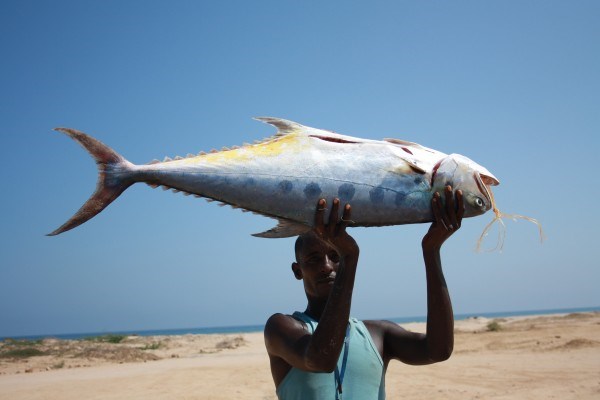
Sunday January 17, 2016

Since the 1970s, the Somali government has supported fishery and agricultural co-operatives in the country
A series of fish-aggregating devices (FADs) or ‘fish magnets’ have been deployed along Somalia’s coastline to try and boost the country’s fisheries and tackle malnutrition.
According to the Food and Agriculture Organization (FAO), the devices are made up of a floating buoy and a ‘habitat mat’, a few metres wide. In a statement, the FAO explained: “Plant life quickly grows under the mat, attracting large numbers of fish – in essence creating new high-density fishing grounds where none existed before.”
As part of this project, co-op leaders, village elders and government ministries have signed local agreements with rules to help avoid conflict and ensure the sustainable use of each FAD.
The devices have been placed in carefully chosen deep-water locations and anchored to the seabed. They encourage many different species of fish that small-scale fishers cannot easily catch as well as encouraging fishers to move away from coral reefs and sea grasses that are vulnerable to overfishing.
The Union of the Somali Cooperative Movement supports the reconstruction and growth of sustainable livelihood in Somalia, in a country that still suffers from extreme poverty and undernourishment. The FAO noted that: “Just over one million people in Somalia currently face severe food insecurity, while an estimated 307,800 children under the age of five are acutely malnourished.” They have pointed to sustainable fisheries as a key method in tackling food insecurity in the country.
The governments of Japan and Switzerland funded the FADs, while money from the UK and European Union has gone towards construction and training.